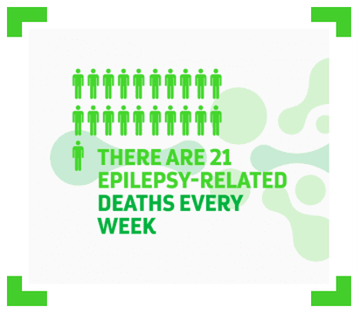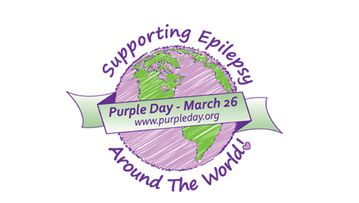International Epilepsy Day
NewsEpilepsy is a condition which most people know of - but that doesn't mean it is well-understood. Living with epilepsy can affect everything from a teenager's ability to have a drink with friends to a couple's family planning, and can impact choices around personal transport, choice of profession, and working environments. Education and learning, memory, mood, sleep and stress can all be impacted by - or have an impact on - a person's epilepsy.
This International Epilepsy Day, we want to highlight the breadth of impact that the condition can have on those who live with it - and therefore the variety of health, support, lifestyle and community services that someone with epilepsy might need access to, or interaction with.
Integrating physical, mental and emotional health
Around half of the population diagnosed with epilepsy have co-existing physical or psychiatric conditions.
Around 1 in 3 people with epilepsy in the UK also have depression. That's 200,000 people.
Reducing unnecessary deaths
Over 1,000 people die of epilepsy-related causes every year. Approximately 42% of these deaths are potentially avoidable.
That's up to 420 people every year who could be saved.

Taken from Epilepsy Research UK
Understanding epilepsy and improving treatment access and support could make a huge difference to the health outcomes of populations, reducing hospitalisation, improving self-management and overall wellness and working to preserve health and prevent illness.
Improving health outcomes and quality of life, and reducing unnecessary admissions:
The Joint Epilepsy Council (2011) estimate that 70% of the population with epilepsy could be seizure free with the right treatment, whilst currently around 52% are.
That's 108,000 people who could be seizure-free with the right treatment.
Neurology Academy has begun supporting professional education in epilepsy understanding and management through their Neuropharmacy MasterClass and recent Neurological Network Manager's Meeting.
We would like to offer a broader range of educational courses and materials to healthcare professionals to support diagnosis, treatment, management and service improvement for those living with epilepsy in the UK.
This World Epilepsy Day, please tell us how we can better support your understanding of, and confidence in, epilepsy care and management.
Find out more about our work in epilepsy education to date:
Neuropharmacy and epilepsy:
Our Neuropharmacy MasterClass has in-depth sessions across various conditions, epilepsy amongst them.
Module 2 of the course looks at what seizures and epilepsy are and how to diagnose and investigate suspected epilepsy. Focus then shifts to treatment options and how to support individuals to find the best medication for them, as well as reviewing the role of pharmacists in optimal management.
There is a dedicated session for epilepsy and women, given the link between hormones and epilepsy. This link means that epilepsy management may be more complex for women, and examines optimal treatment spanning puberty, pregnancy and menopause. It also considers linked issues like birth control interactions with epilepsy drugs, and higher-prevalence comorbidities like osteoporosis.
Neurology Network Manager's Meeting
Julie Riley, Divisional Director Neurology, The Walton Centre NHS Foundation Trust spoke to the Neurology Network Managers Meeting on the importance of maintaining core services for headache and epilepsy during the pandemic and how this was managed during the first wave by the Walton Centre in Liverpool. She also spoke of the learning that has been captured for the future.
Key messages around epilepsy services included:
Essential services were maintained, including:
- education, through short podcasts and other media means.
- non-face to face appointments, which most people with epilepsy were well suited to.
- telemetry recording which was continued through home and mobile telemetry recording
- the post-seizure pathway was already in place and staff tried to continue to follow this
- emergency clinics which were kept open with risk stratification of patients, and were predominantly attended by pregnant women.
Additional learning which can be useful going forward, included:
- Developing systems of mutual support with other acute hospitals, and developing new standard operating procedures in working both internally and in partnership with neighbouring trusts. This enables better integration, less variation, and sharing of positive practice.
- A new project looking at triage, advice and guidance has come out of the challenges, with an emphasis on equipping individuals with the information needed to make informed choices and take a key role in their own management.
More information and references from the voluntary sector:
Young Epilepsy
Epilepsy Research UK
The Joint Epilepsy Council
Epilepsy Society
Epilepsy Action
Related articles

Purple Day!

Living with epilepsy - Worries and wishes
Optimised education, compassionate care
Epilepsy Academy seeks to raise awareness of epilepsy, equipping professionals to deliver compassionate, holistic care that transforms people's lives.